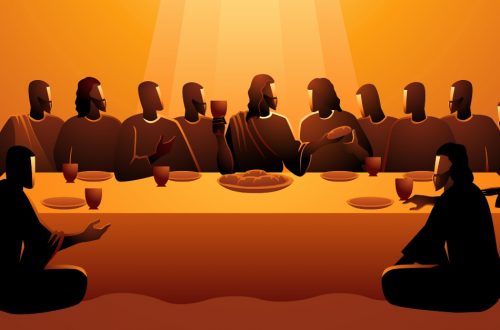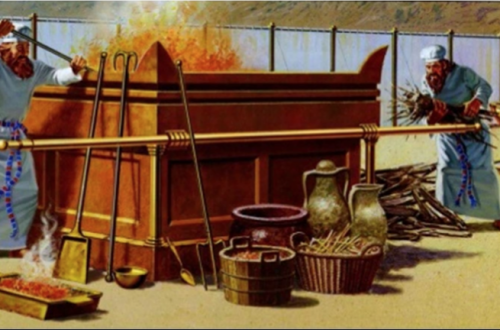The Full Divinity of the Holy Spirit
This year in the church calendar, the Day of Pentecost (meaning “fiftieth day”) occurs on May 20th. Annually, on the seventh Sunday after Easter, believers celebrate the occasion when the Holy Spirit descended on Jesus’ disciples after His ascension into heaven (Mark 16:19; Luke 24:51; Acts 1:2, 9; 2:1–4).
The outpouring of the Spirit on Pentecost signified the inauguration of the new covenant. His appearance as tongue-shaped flames over each disciple’s head fulfilled what Jesus’ promised the evening before He went to the cross. Specifically, the Father and the Son would send the Spirit to abide with Jesus’ disciples forever (John 14:16–17; 16:7).
Jesus referred to the Holy Spirit as the “Advocate” (in Greek, paraklētos; or “Comforter,” “Helper,” “Counselor”) and the “Spirit of truth.” As the representative of the Father and the Son, the Spirit would teach Jesus’ followers everything they needed to know to remain faithful and fruitful as His emissaries in proclaiming the gospel.
The Spirit’s teaching ministry included enabling Jesus’ disciples to recall what He had told them during His earthly ministry (14:26). Likewise, the Spirit would guide Jesus’ disciples into a comprehensive understanding of “all the truth” (16:13) concerning salvation. Following Pentecost, the Spirit would also help Jesus’ disciples understand the significance of His ministry, death, resurrection, and exaltation (1:14, 18; 14:6).
Jesus disclosed that the Spirit never worked independently from the Father and the Son. Indeed, the Spirit would pass along to Jesus’ followers whatever He gave to the Spirit. Just as the Son glorified the Father during the Son’s earthly ministry, so too the primary function of the Spirit’s ministry was to glorify the Son (16:14–15). This arrangement points to the unhindered communion, cooperation, and unity among the three Persons of the Godhead.
Furthermore, like a prosecuting attorney before the Father’s cosmic court of justice, the Spirit would present indisputable proof of pagan humanity’s guilt (16:8–10). This included proving their culpability with respect to the sin of rejecting the Messiah, spurning His provision of righteousness, and refusing to acknowledge God’s judgment of them, Satan, and his evil cohorts.
The preceding observations are, in part, the basis for the apostolic teaching of the early church that the Holy Spirit, along with the Father and the Son, is fully divine. This is not an arbitrary doctrine that church leaders invented centuries later, but a teaching that is deeply rooted in Scripture.
Germane in this regard is the Shema (in Hebrew, “hear”) of Deuteronomy 6:4, which has been translated in a number of ways, including the following: (1) “the Lordour God, the Lordis one” (NIV, NKJV, ESV, CSB); (2) “the Lordis our God, the Lordis one” (NET, NASB); (3) “the Lordis our God, the Lordalone” (Tanakh, NRSV, NLT); (4) “the Lordour God is oneLord” (KJV); and, (5) “Yahweh our God, Yahweh is unique” (Lexham).
Deuteronomy 6:4 reveals that the Godhead is one in His being and absolutely unique in His attributes (Deut 32:39; Ps 86:10; Isa 44:6, 8; 45:5–7, 14,18, 21; 46:9). Put another way, Yahweh alone is the one, true, and living God (Rom 3:30; 1 Cor 8:4, 6; 1 Tim 2:5). The unity and indivisibility of the Creator (referred to as monotheism) is one reason why only He deserves to be exclusively worshiped and served (Deut 6:5; 11:1, 22; Zech 14:9; Matt 22:37; Mark 12:30).
Even so, it is incorrect to conclude that the above truth contradicts the ontological and relational unity of the three Persons in the Godhead, as revealed in the New Testament and later developed in the creeds and councils of the early church. For instance, the Nicene Creed (dating from 325, 381, and 451 A.D., respectively) declares that the Son is “of the same essence as the Father” (in Latin, consubstantialem Patri; “consubstantial with”; “one in being with”; “being of one substance with”).
The preceding statement would also apply to the full divinity of the Holy Spirit. After all, the Nicene Creed refers to the Spirit not only as the “Lord,” but also as the “giver of life.” The Spirit is to be “worshiped and glorified,” along with the “Father” and the “Son.”
In agreement with the above observations, five biblical passages are worth considering. First is Matthew 28:19, which is part of the Great Commission. On the first Easter Sunday, the risen Lord Jesus commanded His followers to “make disciples of all nations,” while doing so “in the name of the Father and of the Son and of the Holy Spirit.” The Greek noun translated “name” is singular and points to the unity of the three Persons in the Trinity.
Second is 1 Corinthians 12:4–6, in which the context is Paul’s extended discussion of the spiritual gifts. He begins by mentioning the Spirit, then the Lord Jesus, and finally God the Father. Here the apostle revealed that each member of the Trinity is equally and sovereignly involved in the provision and operation of these special abilities within the universal church.
Third is 2 Corinthians 13:14, which contains Paul’s benediction to the readers of his letter. The apostle mentions the “grace” of the Son, the “love” of the Father, and the “fellowship” of the Spirit. This blessing, which was commonly used in congregational worship, is conveyed in a Trinitarian formulation.
Fourth is Ephesians 4:4–6, where Paul declares that the body of Christ exists as a unity in diversity. The Persons of the Trinity are listed in reverse order, beginning with the Spirit, continuing with the Lord Jesus, and ending with God the Father. The unmistakable implication is that the Godhead is united, not divided.
Fifth is Revelation 4:4–6, which records John’s greeting and doxology to seven first-century-A.D. congregations in the Roman province of Asia (modern-day Turkey). The apostle mentions the sevenfold Spirit first, then the Lord Jesus, and finally God the Father. The creedal nature of this ancient sacred text indicates that the first and second generations of Christians affirmed, without reservation, the full deity of the Holy Spirit, the Father, and the Son.
The preceding five biblical passages reveal that the Spirit is not some nebulous force or ill-defined energy. After all, He is the Lord (namely, Yahweh in the Old Testament; 2 Cor 3:17). As discussed earlier, on the Day of Pentecost, the Spirit enabled Jesus’ early followers to speak in tongues (Acts 2:1–4). The Spirit empowered Stephen, the first recorded Christian martyr, to bear witness to the Messiah (7:55–56).
The Spirit miraculously transported Philip, the Evangelist, far away from the Ethiopian official after sharing the gospel with him (8:39–40). The Spirit communicated directly to various Christians in the early church, including Philip (8:29), Peter (10:19–20; 11:12), Agabus (a prophet; 11:28; 21:11), a group of worshiping and fasting Christians (13:2), Paul (20:22–23), and some unnamed disciples (21:4).
In stepping back from this consideration of Scripture, there are three important doctrinal conclusions. First, the Spirit is fully divine, as are the Father and the Son. Second, the Spirit, rather than being lesser in rank and importance, is completely and eternally equal to the Father and the Son. Third, the Spirit is a separate person in the Triune Godhead, being distinct from the Father and the Son.
With the arrival of Pentecost Sunday, may the Father use the Spirit to sanctify Jesus’ followers and give them the strength they need to be His faithful and fruitful ambassadors.[1]
_________________________________________________________________
[1] An earlier version of this blogpost is archived at the website of South African Theological Seminary: https://www.sats.edu.za/full-divinity-holy-spirit/.




